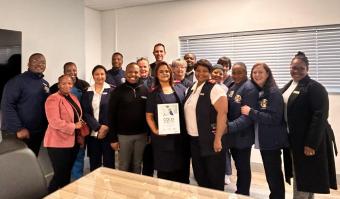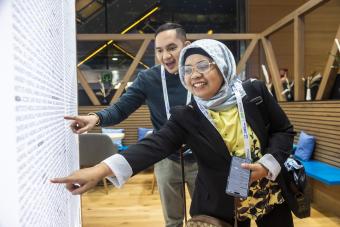The ESO-Angels Spirit of Excellence award is given to those who embody excellence in stroke care, in their dealings with patients, other members of the hospital team and those who strive to raise the standard of excellence not only in their hospital but also in their wider community.
 This year, we are proud to highlight seven heroes from the Angels community, who have gone far above and beyond in advancing stroke care.
This year, we are proud to highlight seven heroes from the Angels community, who have gone far above and beyond in advancing stroke care.
Richard and Avril
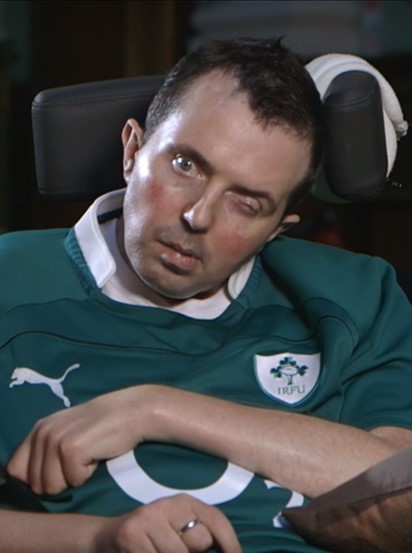
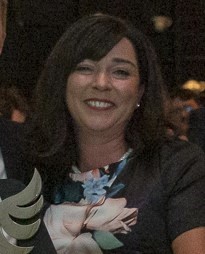
Newlywed at just six weeks, 40-year-old Richard Roche from Dublin suffered the traumatic effects of brain hemorrhage which resulted in a severe brain stem stroke in 2010. His wife Avril Halpin, his stalwart support said: “Our worlds were turned upside down. The impact of Richard’s stroke was devastating. Richard was placed into an induced coma and there were limited flickers of movement for months on end.”
The Angels Initiative and their paths crossed when we were looking for a visual example of what the effects of a severe stroke could be. We wanted not only to talk about stroke, but to show the public what could happen if we are not successful. Richard and Avril’s video on YouTube made such an impact on us that we started with the process of tracking them down to ask for the rights to use it in our workshops. It took some time, but with some luck we managed to make contact. They immediately agreed that we could use the footage and so our relationship started.
We first used their video in our very first Angels meeting in Germany, June 2016. It had an amazing effect as people immediately understood what Angels stood for. Since then, their story has not only motivated us to keep doing what we are doing, but it has also motivated scores of doctors, nurses and ambulance staff to take on the spirit of Angels and make a difference.
Unfortunately, in December 2018 Richard passed away. His spirit lives on through us and his story will keep inspiring Angels all over the world for years to come. For being our motivation and for reminding us what it is we are fighting for, Avril and Richard were honored with a Spirit of Excellence award for 2019.
Dr. Veselina Andonova
MHAT St. Panteleimon, Plovdiv, Bulgaria
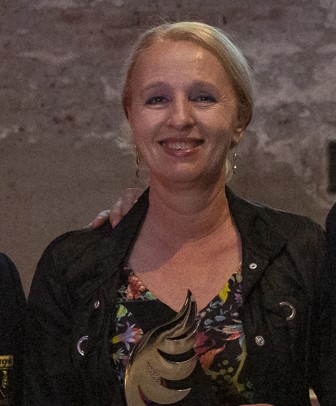
Dr. Andonova may not be working in the biggest or most modern hospital, but that did not stop her from becoming a bright spot that helped inspire the creation of new stroke-ready hospitals in her region.
As the Head of Neurology in MHAT St. Panteleimon, Plovdiv, she is known as a leader who is always ready to adopt new ideas to improve stroke care. This is evidenced by the fact that Dr. Andonova was the first doctor in Bulgaria to have treated a stroke patient with reperfusion therapy all the way back in 2005. Since then, she has never lost her motivation and today she is leading arguably one of the best stroke teams in Bulgaria.
Hers was also one of the first hospitals we have worked with which agreed to conduct an in situ simulation – one of the most effective activities that a stroke team can do to improve their pathway – as well as to implement mandatory quality monitoring using the RES-Q quality registry. As of several months ago, her department also became the first in Bulgaria to enroll in the QASC project which aims to improve post-acute care for stroke patients.
However, what impressed us the most is the amount of effort Dr. Andonova invested for other hospitals in her region. Even though it’s not her responsibility, she kindly accompanied our Angels consultant to visit several hospitals which had never treated stroke before, where she helped to train, encourage and motivate them to the point of becoming stroke-ready hospitals. Moreover, she never hesitated in making time to share her knowledge and experience with anybody who needs support, to the point that it has now become commonplace for neurologists from other towns to visit her hospital to observe and learn how a stroke unit can be organized.
We truly believe that Dr. Andonova deserves this award because she is a great example on how one does not need to have a title or to work in a state-of-the-art hospital to become a leader who is able to inspire courage for others. With her sincere and unstoppable motivation, she has improved stroke care not only in her region, but also the care for many patients in different parts of Bulgaria.
Prof. Igor Voznyuk & Dr. Tatiana Kharitonova
Scientific Research Institute of Acute Care in Saint-Petersburg, Russia
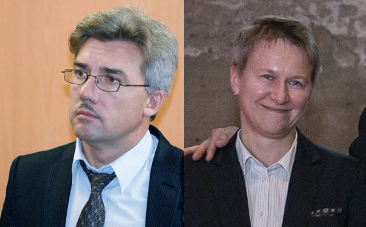
In November 2017, Prof. Igor Voznyuk and Dr. Tatiana Kharitonova visited a stroke simulation training center managed by Dr. Robert Mikulik and his team at St. Anne’s University Hospital in Brno, Czech Republic. Inspired by what they saw, they immediately started planning to offer a similar type of simulation-based training course at the St. Petersburg Research Institute of Emergency Care, where they would be able to emulate a hospital environment better and conduct trainings on a regular basis.
It was never going to be easy, but they knew that such facility would dramatically improve the training for stroke teams that are working in their region. The challenge was to convince the right people that this simulation center idea is a worthwhile investment to improve stroke care quality at a national level. Eventually, the course was launched in June 2018 during a conference dedicated to emergency care in St. Petersburg, where they hosted a simulation-themed symposium.
The courses are set to take place once every three months, inviting every advanced neurologist from the region’s stroke units. But as with all great visionaries, Professor Voznyuk and Dr. Kharitonova have set their eyes on to bigger things; aiming to increase the training frequency to a monthly basis and involving regions other than their own. They are also looking into formalizing this course as an elective module for the national certification of neurologists, so that participants can claim points creditable to their neurologist certification – which per local regulation must be renewed every five years, thereby ensuring full coverage within only half a decade.
In considering to set up a simulation center, one might think that vast amount of resources would be needed. The learning from St. Petersburg Research Institute of Emergency Care is that this can be done with minimum resources and some support provided by the Angels Initiative. Needless to say, we are extremely proud to be a small part of this movement, which we are certain will shift the landscape of stroke care in Russia.
Tereza Loučná
Motol University Hospital, Prague, Czech Republic
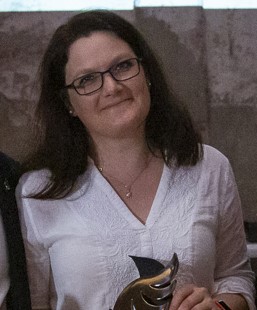
Tereza’s commitment to improving stroke care in Czech Republic is undisputable. Despite the demands of being the Head Nurse of Motol University Hospital’s Comprehensive Stroke Unit and an active faculty member at Second Faculty of Medicine in Charles University, Tereza still finds the time to contribute her experience and knowledge in various activities to support the Angels Initiative movement – which earned her the distinction of becoming the first nurse and female member of the Angels Steering Committee.
Tereza works without any expectation of acknowledgement and has dedicated countless hours organizing workshops on dysphagia and quality monitoring for nurses on a regular basis. She also volunteered to become the QASC project coordinator for Czech Republic and has since helped organize two regional Angels QASC workshops – each attended by 80 nurses and several doctors – with two more workshops already planned before the end of the year. A strong proponent of quality monitoring, she regularly provides proactive feedback on SITS, RES-Q and QASC based on her daily use – helping improve the data quality of many hospitals in the process.
The Angels Initiative is currently helping Tereza to organize a national cerebrovascular congress for stroke nurses, which will be dedicated for nurse development and spreading of stroke knowledge based on best practices, and will be attended by all stroke units in the country. This event is the first of its kind and is aimed to create a community of stroke nurses and inspire their participation in improving of stroke treatment on national level.
Tereza’s everlasting endeavor to empower nurses in Czech Republic has made her a de facto leader of stroke nurses in the country and earned her a lot of respect within the cerebrovascular society.
Prof. Dmytro Lebedynets
Central Clinical Hospital of Ukrzaliznytsya
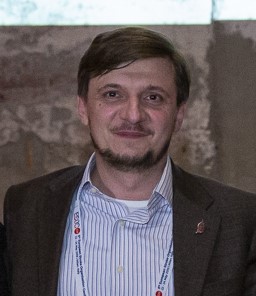
Despite his young age, Prof. Dmytro Lebedynets is a very experienced stroke physician who has contributed a lot to the improvement of stroke care in Ukraine.
Passionate about stroke prevention, Prof. Lebedynets initiated the first national public awareness campaign on stroke, for which he produced a video to educate the masses about stroke and its symptoms. This video, titled “Time is Brain“ was broadcasted during prime time on seven regional TV channels, reaching most of the population in Ukraine. He also took it upon himself to translate the FAST scale into Ukrainian.
In October 2018, a Stroke Simulation Center was opened at M. V. Sklifosofsky Poltava Regional Clinical Hospital – the first of its kind in Ukraine and only the second in Eastern Europe – and Prof. Lebedynets, who was heavily involved in the creation of this simulation center, became its first trainer. Now stroke teams from all over the country have the opportunity to receive proper education and improve their skills in managing stroke care.
Our local Angels Consultants have seen first hand the dramatic effect that the Poltava Simulation training has had on improving the confidence of treating physicians. Many of which have never treated patients with recanalization therapy before and are now doing so.
A true pioneer in raising the standard of stroke care in Ukraine as well as a mentor for a large number of current and future Ukrainian strokeologists, we are thankful to have the opportunity of working with Prof. Lebedynets.
Marianne Klinke & Kristín Ásgeirsdóttir
Landspitali University Hospital, Iceland
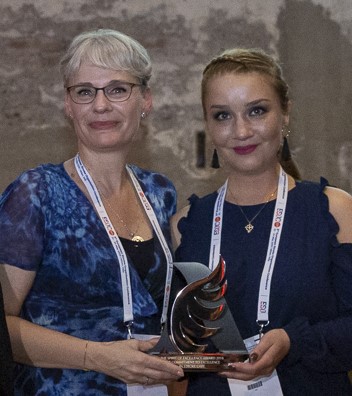
In December 2017, Marianne Klinke and Kristín Ásgeirsdóttir, nurses from Landspitali University Hospital’s (LUH) Neurology Department joined Angels Initiative’s inaugural Train-the-Trainer (TTT) meeting in Wiesbaden, Germany. Being the most sparsely populated country in Europe, nearly all acute stroke patients are treated in LUH – where around 70 percent of Icelandic children are born.
By May 2018, LUH reported that they had started implementing a new pathway for administration of recanalization therapy based on insights obtained from several simulations. The results speak for themselves: 296% increase in patients who have received recanalization procedures (compared to 2014 – 2016) and reduction of median Door-To-Treatment (DTT) times from 79 to 25 minutes (record time: 13 minutes) when the pathway is functioning.
Within that short period, they also translated and initiated the implementation of the post-acute phase Fever, Sugar, and Swallowing (FeSS) Clinical Treatment Protocols in the stroke unit. By now, the protocols have been taught both within the hospital and within the Icelandic patients’ stroke association and necessary revisions been conducted to ensure better compliance with the guidelines.
This dramatic improvement is all the more impressive when considering that there is no dedicated Angels Consultant in Iceland – everything was planned, assessed and executed by these nurses right after attending a two-day workshop.
Marianne’s and Kristín’s achievement is a great reminder that with the right spirit and motivation, anyone can instigate everlasting improvement at a national level that can save many lives.
Prof. Valeria Caso
University of Perugia, Past President of ESO
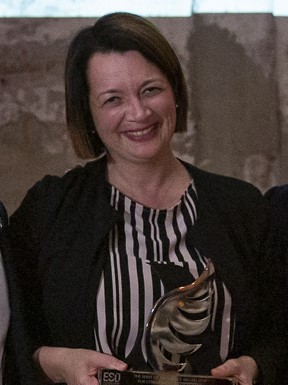
At the beginning of 2016, we had the opportunity of meeting Prof. Valeria Caso in Perugia, Italy, as President Elect of the European Stroke Organisation (ESO) to discuss our project and our goals. We had a clear idea of what needed to be done in order to achieve our vision of providing the best possible care for all stroke patients no matter where they are, but we also realized that it could only be done if we receive endorsement and support from the stroke societies.
What followed was a pleasant surprise for us – not only did she believe in the project, she was also very eager to contribute in more ways than we could have ever expected. Her ideas and actions led us to the Angels Initiative as we know it today.
Tapping into her decades of experience in stroke care, Prof. Caso was a constant source of guidance and information. Not only did she help define our mission and provide endorsement from the ESO, she went above and beyond by initiating the ESO Quality Improvement Project which features Angels Initiative and the ESO-Angels Award program as essential components – a very bold step and strong show of faith for a project the like of which has never been done before. She actively promoted the Angels Initiative at every chance she had and was always eager to lend her voice and expertise to support our activities and materials.
Without her, Angels Initiative may never have gotten off the ground or achieved its initial goal, let alone reaching the current height of having more than 3,000 hospitals from nearly 100 countries enrolled. To us, Prof. Valeria Caso is the perfect embodiment of the Spirit of Excellence Award.


